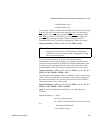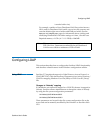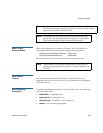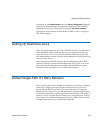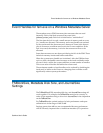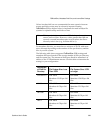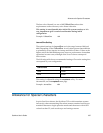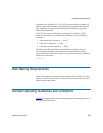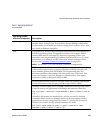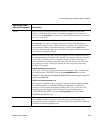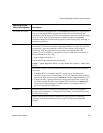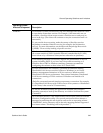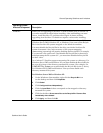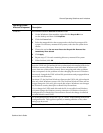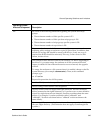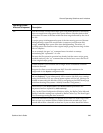
General Operating Guidelines and Limitations
StorNext User’s Guide 339
Table 1 Operating Guidelines
and Limitations
Operating System /
Affected Component Description
HA configurations In HA (high availability) configurations, do not run
adic_control start on the
standby server. Doing so may start StorNext Storage Manager components
on the standby server which are already running on the primary server, and
may result in database corruption.
IRIX As of release 3.0, StorNext does not support metadata controllers running the
SGI IRIX operating system. To upgrade to StorNext 3.0 or higher, MDCs
running IRIX must be converted to a supported operating system. This
conversion must be performed by Quantum Professional Services. For more
information, or to schedule an IRIX conversion, contact Quantum Global
Services (see Quantum Technical Assistance Center
on page 322).
NOTE: The StorNext 3.1.2 client software continues to support IRIX.
SNFS uses 64-bit inode numbers. 32-bit applications (programs compiled
without 64-bit) support may experience problems working with files with
inode numbers greater than 2147483648. 32-bit applications may also
encounter problems when dealing with files greater than 2TB in size, This
issue is not unique to StorNext, but may be encountered by some legacy
applications when working with SNFS on IRIX.
StorNext supports only SGI 64-bit versions of IRIX on operating systems that
use the SGI version of the QLogic QLA2200 or QLA2310 FC-HBAs.
On many versions of IRIX, the root
crontab contains the following entry which
is used to remove old application crash dumps and temporary mail files:
find / -local -type f '(' -name core -o -name dead.letter ')' -atime +7 -mtime +7 -exec rm
-f '{}' ';'
If StorNext file systems are mounted, they will be traversed by this find
command which can have a dramatic impact on the performance of other
applications currently using these file systems. To prevent the traversal of
StorNext file systems, modify the
find command so it reads:
find / -local '(' -type d -fstype cvfs -prune ')' -o -type f '(' -name core -o -name
dead.letter ')' -atime +7 -mtime +7 -exec rm -f '{}' ';'



